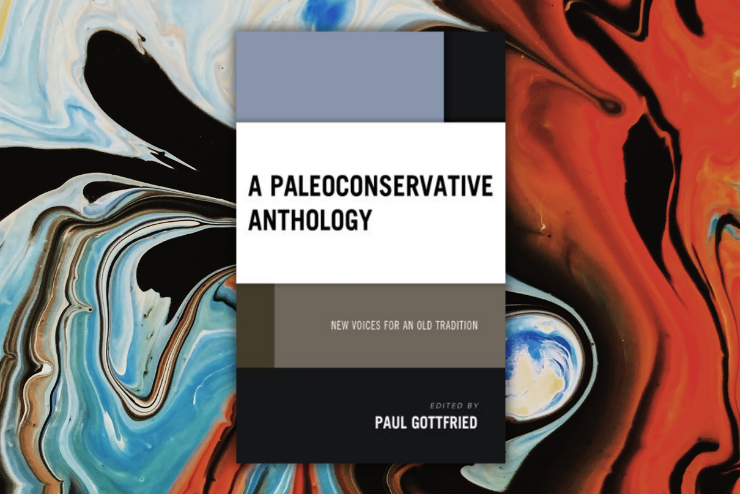In a column in The New York Sun, written in defense of Donald Trump as a presidential candidate, newspaper magnate Conrad Black ends his comments with these biting words:
As long as he emphasizes increasing arms supplies to Ukraine while jaw-boning with the Russians about a peace that does not completely humiliate Russia and begins the restoration of civilized relations with the West, and doesn’t fall into the trap of the Neanderthal isolationists who want to simply cut arms sales to Ukraine like Joe Biden and his fellow Democrats did to South Vietnam 50 years ago, Mr. Trump should not lose on the issue.
Black’s snide reference to the unnamed “Neanderthal isolationists” seems to be his usual way of dealing with the paleoconservatives, whom he never mentions by name. “Paleo-conservative objections to it in the United States are nonsense,” Black complained last month in The Epoch Times. But he never tells us, and perhaps has no intention of doing so, who these people are. Do they have names? And do their thoughts have any intrinsic value other than being attached to those whom Black has designated as whipping boys.
Black’s treatment of paleoconservatives is entirely typical of how the conservative establishment—including those who have partly broken from the neoconservatives by defending Trump against his enemies—deal with those whom they consider to be on their right. There is no need to learn the names of these troublemakers and certainly no reason to quote their writings. One can simply refer to these outsiders as unmentionables.
As Fate would have it, I just helped edit A Paleoconservative Anthology: New Voices for an Old Tradition, featuring paleoconservative thinkers and those who are at least sympathetic to the cause. Contrary to everything about paleoconservatives that Black has written, this group does not hold a singular, unified position on the Russo-Ukrainian war. In fact, they have engaged in lively debate on this topic—unlike the Murdoch media (with the exception of Tucker Carlson), which grinds out dreary neocon party lines on foreign policy on a daily basis.
Although I’ve been one of the more pro-Ukrainian members of my camp, even I was appalled by the admonition issued by Wall Street Journal columnist and editorial board member Kimberley Strassel warning Ron DeSantis not to question neocon-liberal orthodoxy about giving inexhaustible support to the Ukrainian government in its struggle against Russia. Presumably, if DeSantis raises questions about the blank-check policy for Ukraine (something Trump has complained about), then the Murdoch family’s media outlets, from Fox News to the Journal and The New York Post, may turn their editorial affections elsewhere, perhaps to the insipid Nikki Haley or to the perpetually warlike Mike Pompeo.
The first thing one might want to learn about paleoconservatives is that (surprise!) they actually allow debate over divisive issues. Unlike the pabulum provided by Brian Kilmeade, Sean Hannity, and most of the rest of the Fox News crew, paleoconservatives air real differences without (are you ready for an even bigger surprise?) canceling those who question prefabricated party lines. There is obviously a broad consensus on social and cultural matters uniting the paleoconservatives, but no one is thrown off the bus (I know this sounds wild!) for disagreeing on some aspect of foreign policy, the nature of the civil rights movement, or the causes of the American Civil War. Chronicles has featured serious debates on issues that the mainstream conservative media wouldn’t touch with a 10-foot pole.
In our anthology, we have gladly featured advocates of the traditionalist political orders alongside Jeffersonian constitutionalists. What obviously unites the two sides is a recognition that some replacement must be found for the antiwhite, anti-Christian, anti-male therapeutic governance that has become the norm in the post-Western West. We also include in our anthology defenders of both the populist right and traditional small-government conservatives. The paleoconservative table is large enough to seat both groups. Moreover, paleoconservatives have been free to develop their own ideas. Since they detached from the mainstream conservative movement decades ago, they have not been subject to movement orthodoxies. This isolation has had the advantage of encouraging independent thought.
The anthology also notes the transmission of paleoconservative ideas to a younger generation on the intellectual right, not all of whom identify themselves explicitly as paleoconservatives. With the rise of the populist right, these “new voices” for a long-standing but isolated and often-scorned movement will likely have a considerable impact on American political culture. The anthology suggests this development has already begun.

Leave a Reply